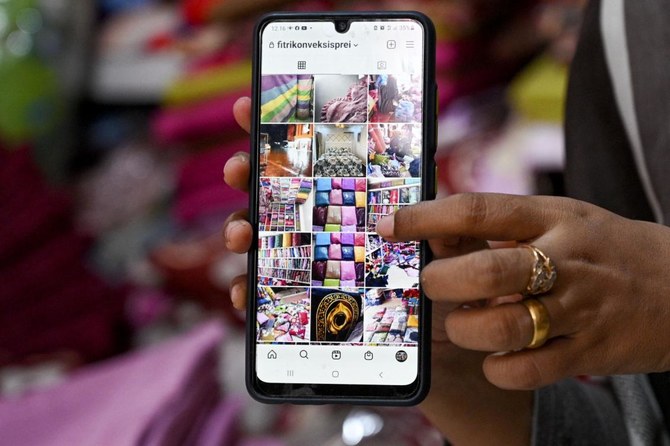JAKARTA: Indonesia may issue on Tuesday a regulation on the use of social media to sell goods in the country, President Joko Widodo said, a move intended to quell threats to offline markets in Southeast Asia’s biggest economy.
Ministers have repeatedly said that e-commerce sellers using predatory pricing on social media platforms are threatening offline markets in Indonesia, with some officials specifically citing the video platform TikTok as an example.
“We just...decided on the use of social media for e-commerce. Tomorrow it will perhaps come out,” Widodo, who is commonly known as Jokowi, said in a streamed video address on Monday.
“What the people are expecting is that the advancement of technology can create new economic potential, not kill existing economies.”
Jokowi did not mention any specific companies or offer further details on the regulation, which is being formulated by the trade ministry.
Current trade regulations do not specifically cover direct transactions on social media.
Deputy Trade Minister Jerry Sambuaga said earlier this month that “social media and social commerce cannot be combined,” vowing to ban the mix of the two and citing TikTok’s “live” features which allow people to sell goods.
A TikTok Indonesia spokesperson declined to comment. TikTok is owned by Chinese tech company ByteDance.
The company said that its app had 325 million Southeast Asian users that were active every month, of whom 125 million were in Indonesia. The company has said that there were 2 million small businesses on TikTok Shop in Indonesia.
Indonesia may issue regulations on social media e-commerce this week
https://arab.news/vq28k
Indonesia may issue regulations on social media e-commerce this week

- Trade Ministry likely to impose strict regulations
- Social media platforms are threatening offline markets, ministry said
Hezbollah says Israeli strike killed Al-Manar TV presenter in southern Lebanon

- The Israeli military said later on Monday that Al-Din was a Hezbollah militant who recently worked to rehabilitate the group’s artillery capabilities in southern Lebanon
The Lebanese armed group Hezbollah said on Monday that an Israeli strike in the country’s south killed TV presenter Ali Nour Al-Din, who worked for the group’s affiliated Al-Manar television station.
The group said the killing portends “the danger of Israel’s extended escalations (in Lebanon) to include the media community.”
The Israeli military said later on Monday that Al-Din was a Hezbollah militant who recently worked to rehabilitate the group’s artillery capabilities in southern Lebanon.
Israel and Lebanon agreed to a US-brokered ceasefire in 2024 to end more than a year of fighting between Israel and Hezbollah, which culminated in Israeli strikes that severely weakened the Iran-backed militant group. Since then, the sides have traded accusations over ceasefire violations.
Lebanon has faced growing pressure from the US and Israel to disarm Hezbollah. The group’s leaders fear that Israel could dramatically escalate strikes across the battered country, aiming to push the Lebanese government for quicker action to confiscate Hezbollah’s arsenal.













